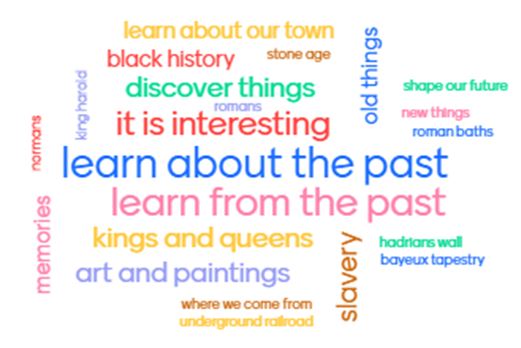Latest News:
INTENT
History can be found all around us and we intend to foster a curiosity within our pupils to learn about Britain’s past and the wider world. In History, pupils will learn about our local community, our country and the wider world including how and why things have changed and the diversity of societies. History will encourage pupils to gain understanding, knowledge and an appreciation of the past. Teaching will support pupils to ask questions to help understand the complexity of people’s lives, as well as their own identity and the challenges of their time. Where possible, topics are studied in chronological order. The History curriculum is broad and balanced with cross curricular links, sets high expectations and is designed to provide appropriate challenge to all pupils.
IMPLEMENTATION
History at Pendle Community High School is based on different topics throughout the year but planned so that pupils can achieve depth and progression in their learning. History is sequenced to enable pupils to use and build on prior learning and knowledge, and to continually develop key skills. Existing knowledge is checked prior to the commencement of each topic ensuring that teaching is planned accordingly from the pupils’ starting points identified through the assessment system. At the end of each topic, key content knowledge is reviewed and consolidated for pupils to demonstrate their understanding of the topic. Specific themed days/afternoons and Erasmus projects allow pupils to consider the world around them and explore other societies through art, culture, music, food and become aware of cultural diversity
Independent learners are encouraged to be inquisitive, ask questions and work independently researching topics being covered. The curriculum is designed to provide challenge and all activities will be appropriately matched for individual learning, as well as encouraging problem solving, teamwork and recognising historical concepts and perspectives.
Supported and experiential learners follow a thematic approach, where many areas of the curriculum are connected and integrated within a theme. These classes work in smaller groups whose learning is met primarily through experiences and activities which are multi-sensory and stimulate learning through kinaesthetic approaches and are supported through structure and routines. This curriculum is used to enhance early learning and development in pupils across school who present with sensory issues and those who learn best via a highly experiential, multi-sensory approach.
History is well resourced and specific resources are mapped to specific groups and topics to support effective teaching and learning. In lessons, we use a range of resources, including artefacts, period costumes, books etc. to support practical opportunities to learn and promote curiosity. The KS3 corridor has a history display wall, which includes a variety of dates, images, key vocabulary and facts pertinent to the topics taught, which ensures the school environment is history rich and further supports learners in retaining subject knowledge. The local area is fully utilised to achieve the desired outcomes, with extensive opportunities for learning outside the classroom embedded in practice.
IMPACT
As a pupil progresses through the school, they develop knowledge, understanding and appreciation of self, their local area and the wider world. Skills and knowledge taught in History are transferable and support pupils to do more and engage more in other curriculum areas. Teachers have high expectations and evidence of this is demonstrated in progress data and KS4 accreditation results. Impact is also recognised in pupils’ contributions, questions and enthusiasm in lessons, participation in themed days and assemblies where pupils demonstrate what they know and remember using appropriate vocabulary.
Pupils further develop their abilities in the 4 key components of the curriculum as well as improving writing, reading and enquiry skills. Some pupils will be able to follow a line of enquiry, through comparison, appropriate questioning and research. The depth of knowledge that pupils will attain will vary but all will demonstrate progress from their individual starting points.
Pupils will have also learnt about careers and related work opportunities that are accessible for them in the local and wider community through visitors to school and educational visits which provide further relevant and contextual learning.
History Lead
Leanne Hunter
lhunter@pchs.lancs.sch.uk
Pupil Voice: Why we think it is important to learn about history in school.

CONTACT US
Pendle Community High School & College
Pendle Vale Campus, Oxford Road, Nelson, Lancashire, BB9 8LF
Tel: 01282 682260
Headteacher: Debra Grogan
Chair of Governors: Trevor Ashton (Address c/o above)
Receptionist: Sophie McCamon
E-mail: smccamon@pchs.lancs.sch.uk
SENDCO: Stephanie Curtis
Email: scurtis@pchs.lancs.sch.uk
CONNECT WITH US
Paper copies of the information on our website can be requested via email.

